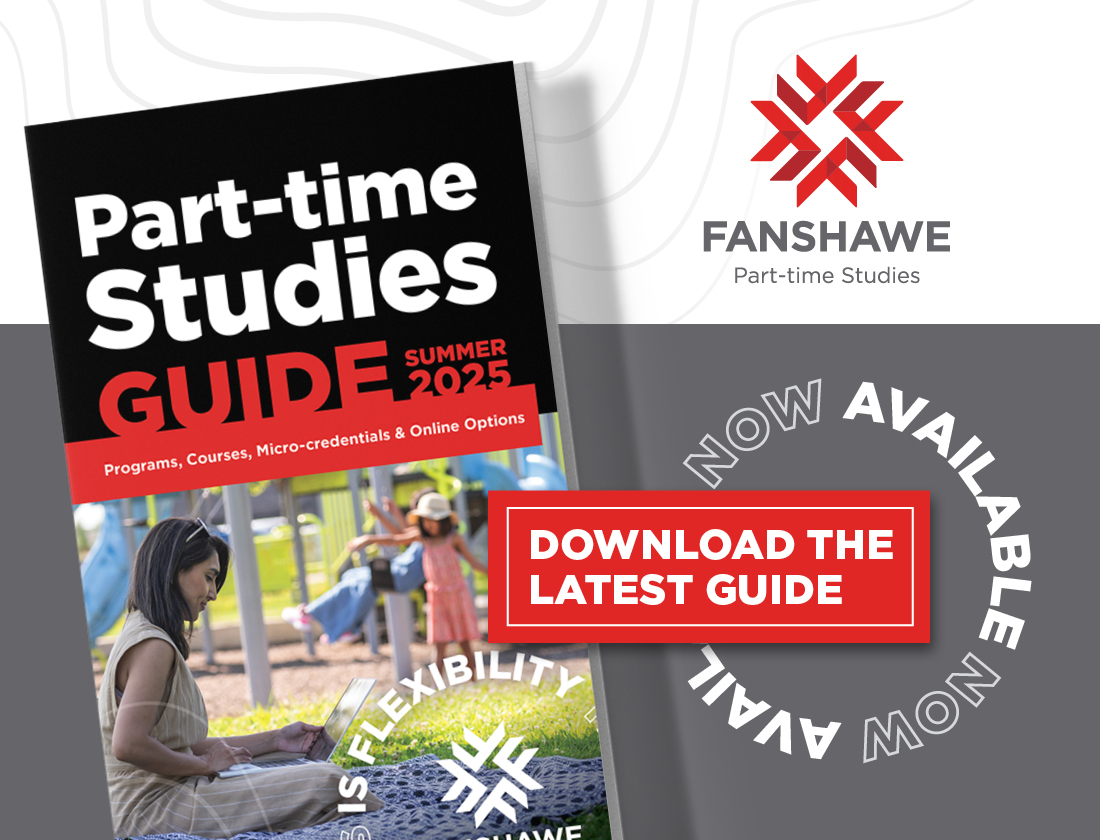
Registration in a program is done on a course-by-course basis each term. The expected availability of courses is displayed below but may change throughout the year. Click on the arrows below to confirm upcoming course offerings and to add a course to your online shopping cart. For assistance, please use the inquiry form on this page or call 519-452-4277.
Overview
Program Description
This program is designed for the professional who wishes to upgrade their skills and those wishing to pursue a career in the fast growing field of Crisis Intervention. The program courses will focus on the theoretical and practical bases for accurately assessing and responding to a variety of crises. This program is offered through Continuing Education on a part-time basis.
Please note: This program will be suspended after the Summer 2025 term. The final course offerings for this program will take place May until August 2025.
Courses
Program Requirements
| Level 1 | ||||
| Expected Availability | ||||
| Credits | Fall | Winter | Summer | |
| Crisis Intervention/Theories/ModelsBSCI-1029 | 2 | Yes | No | No |
Students will learn about the evolution and development of crisis intervention theories and models, and will have an opportunity to examine ethical, legal and multi-cultural issues as well as current best practices in the field trends in this field. Along with a clear understanding of how to apply crisis intervention models to their practical work in this field. | ||||
| Death & DyingBSCI-1030 | 2 | No | Yes | Yes View More Details about BSCI-1030 |
Death is an elemental aspect of life. It is an inevitable transition yet it seems to remain one stage of the life cycle that causes most discomfort. This course enables students to explore their own life backgrounds as they engage in a critical and exploratory study of ideas and issues surrounding Death and Dying. The course will look at Society's attitudes about death, varied meanings and definitions and their influence on the thoughts and feeling of an individual's capacity to acknowledge and prepare for end of life. Students will study the concept of a Death System as theorized by Robert Kastenbaum. Students will look at issues related to anxiety, acceptance or denial and palliative care. The will allow students to examine causes of death, including illness, traumatic loss and suicide. Students will also examine the critical role of the communicational processes in understanding and relating to dying people. | ||||
| Domestic ViolenceBSCI-1031 | 2 | No | Yes | Yes View More Details about BSCI-1031 |
This course provides students with an opportunity to explore many of the issues related to domestic violence. Topics to be studied include: Battered Woman Syndrome, the Battering Cycle, and immediate and long-term effects on children. Other subjects to be examined are the abuse of pregnant women, women with disabilities, issues distinct to multi-cultural, Aboriginal women and same sex violence, and relevant Canadian history and legislation. | ||||
| VictimizationBSCI-1032 | 2 | Yes | No | No |
Students will learn about the emotional impact of victimization. The focus will be on victims of residential break and enter, children and trauma, victims of crime such as; those sexually assaulted, elders, and victims of hate crimes. There will be a special emphasis on recognizing and preventing vicarious (VT), and secondary victimization. VT is also known as secondary traumatic stress, and can affect family, friends, witnesses, first responders such as paramedics, police and health care professionals. | ||||
More Information
Learning outcomes
The graduate has reliably demonstrated the ability to:
- Discuss the complexities of crisis intervention strategies in various first responder and health care settings.
- Discuss the application of relevant ethical and legal issues in crisis intervention and referral practice.
- Demonstrate awareness of the needs of clients from special populations and diverse cultures.
- Make sound decisions based on an evaluation of crisis situations.
- Identify the potential and possible causes of violence.
- Be prepared for interventions with potentially violent persons.
- Utilize learned strategies to assist victims of crime in meeting their emotional needs.
- Apply accepted techniques of crisis intervention used in situations such as domestic violence and sudden death.
Program Details
Download the Part-time Studies Guide
What's included:
- How to assess if part-time learning is right for you
- Part-time learning options and the differences between each
- How to pay for your part-time education
- Part-time options within your area of interest
- How to sign up for part-time studies and where to get help


